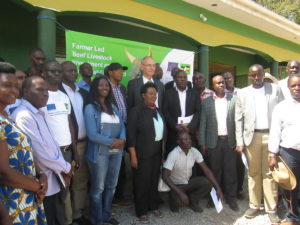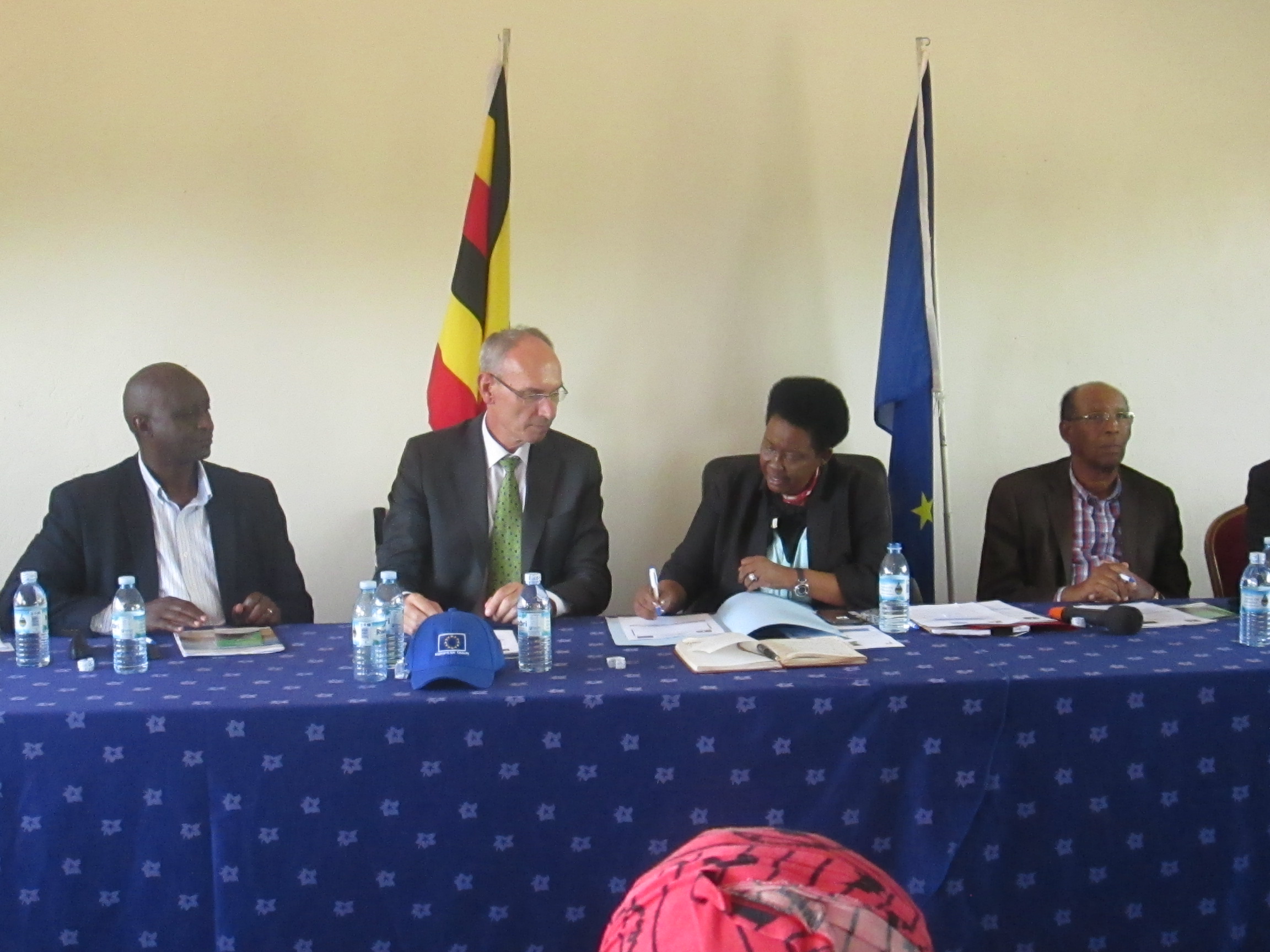The European Union has awarded EUR 1.5 million to the Uganda Meat Producers Cooperative Union Ltd. (UMPCU) to implement the “Farmer Led Beef Industry Investment and Sustainability” project (FALBIIS). This e five-year project, is implemented by UMPCU farmers which also makes a contribution of EUR 300,000.
The FALBIIS project is being implemented in partnership with the Ministry of Agriculture, Animal Industry and Fisheries (MAAIF), to support the development of the beef sector towards the realisation of its full potential. MAAIF, under its project “Developing a Market-Oriented and Environmentally Sustainable Beef Meat Industry in Uganda” (MOBIP), will work closely with FALBIIS to help address many of the barriers which are currently limiting the opportunity for more profitable, and sustainable, beef production. The main constraints faced by beef producers are; poor access to markets and financial services, unpredictable rainfall/water shortages, animal diseases, poor breed types and poor pasture/feed supplies. The European Union is the largest funder of MOBIP with a contribution of EUR 15 Million.
While launching the project, Hon. Joy Kabatsi, the Minister of State for Agriculture (MAAIF), challenged the farmers to utilise the project well in order to get tangible results.
The EU Delegation Head of Section, Sustainable Development, Mr. Aloys LORKEERS stated that a close collaboration between public and private sectors, including cooperatives like UMPCU, is one of the most effective and sustainable ways to increase the performance of the livestock sector, which is a sector that is so important to many farming families and a great contributor to local economic development.

FALBIIS will be implemented through the 33 primary cooperative society members of UMPCU which are located in the Disease Control Zones (DCZ) 1 & 2. The districts with UMPCU members in DCZ1 are; Kiboga, Kyankwanzi, Luwero, Nakaseke, Nakasongola, Kiryandongo and Masindi, and in DCZ2 are; Lwengo, Masaka, Mbarara, Mubende, Ntungamo, Sembabule, Gomba, Kiruhura, Bukomansimbi and Isingiro. Within FALBIIS extra effort will be made to ensure that vulnerable, and marginalised groups, such as women and youth are included and benefit directly from the project interventions.

